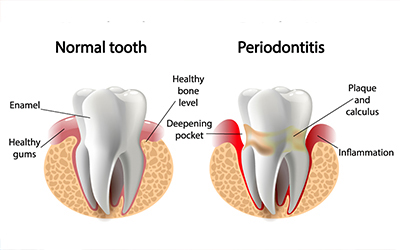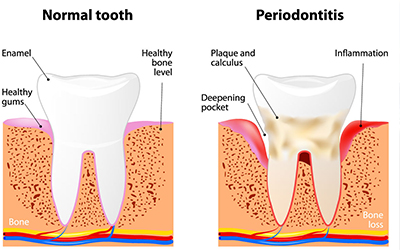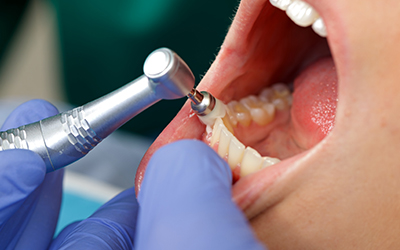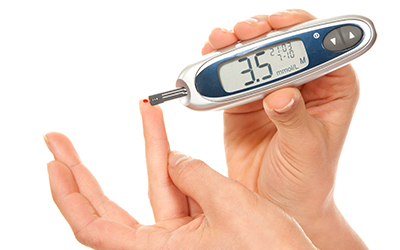FOR THE REMAINDER OF THE DAY:
- Do not spit. Use a tissue to wipe your mouth as needed or swallow your saliva.
- Do not use a drinking straw. Drink straight from the cup.
- Do not smoke.
- Keep fingers and tongue away from the surgical area.
Spitting, the use of a straw, smoking, and poking the surgical area can dislodge the blood clot that is forming and will cause bleeding from the area. Also, smoking can increase the chances of an infection.
BLEEDING:
Some minor bleeding is expected after dental implant surgery. It will usually subside quickly and stop within an hour or two after surgery. A little oozing is normal and may persist for several hours.
- Keep gauze on the surgical area with some biting pressure for 30–45 minutes.
- If all else fails, call the office.
SWELLING:
Most patients will experience some swelling after surgery in the mouth. It may be mild or severe and is different for every patient. The swelling may increase for the first 24–48 hours before it starts to go away. It may last for several days. Some bruising may also develop on the face.
DIET:
You may start with non-abrasive foods such as mashed potatoes, pasta, cottage cheese, soup, or scrambled eggs as soon as the local anesthetic wears off.
You may resume a regular diet as soon as you feel up to it; however, please try not to chew directly on the implant sites.
ORAL HYGIENE:
You may start rinsing tomorrow, very gently, with some warm salt water (1 tsp of salt in 8 ounces of warm water). You may brush your teeth per usual, though be careful near the surgical site(s).
SUTURES:
Unless told otherwise, the sutures used during your procedure are dissolvable and will fall out on their own. This occurs in the first week after surgery, but timing varies from 4–10 days.
BONE GRAFT MATERIAL:
If bone graft material was placed at the time the dental implant was placed, you might notice some gritty material in your mouth.
This is nothing to worry about and should subside within a day or two.
WILL I BE ABLE TO SEE THE IMPLANT?
Depending on the location and stability of the implant being placed, the implant may be buried under the gum tissue. In time, you will return and have the implant uncovered so the implant can be restored.
If stability is optimal, the second stage procedure can be bypassed, and an attachment is placed that protrudes through the gum tissue, which will be visible. Once the bone has healed, the dentist will be able to access the implant without the need for further surgery.
WHEN CAN THE CROWN BE PLACED?
A dental crown can be attached to a dental implant once the implant has fused to the bone. This is a process called osseointegration.
The length of time the bone must heal varies from case to case. The length of time needed for osseointegration is a function of the bone quality, quantity, and implant stability at the time of placement.
MEDICATIONS:
You were given one or more prescriptions for medications. Take all as directed on the bottle. Call us if you experience severe nausea or diarrhea or cannot swallow your pills.
- Antibiotics: Continue until the bottle is empty. Do not quit halfway.
- Pain Medicine: Usually, it is necessary to take narcotic pain medication in a scheduled fashion (every 4–6 hours) for the first 24 hours and as needed thereafter. Remember that narcotics can make you drowsy, so no driving, swimming, operating machinery, or drinking alcoholic beverages while you are taking them.
- You may wean yourself off the narcotic medication and substitute 500 mg of acetaminophen (Tylenol®).
- If directed to do so, you may use ibuprofen, 600 mg, every 6 hours while awake for the first 4 or 5 days.
ACTIVITY:
Once you are no longer taking narcotic pain medication, you may resume your normal activities as you feel up to it. Go easy at first with exercise and recreation, and increase your activity slowly over several days back to your normal routine.
Please follow these instructions as closely as possible. They are designed to help you heal quickly and comfortably.
QUESTIONS?
If you have a question about your procedure or treatment plan, please call our office.
Articles
OUR Blog
Allow our family dentistry clinic to care for your oral healthcare needs with our comprehensive list of services, including dental crowns, dental restorations, teeth extractions, teeth cleaning & examination, teeth whitening, etc. In addition, we also offer essential dental care services such as dentures, partial dentures, veneers, and dental implants. Learn more about these dental services and trending oral healthcare topics in our monthly blog.










